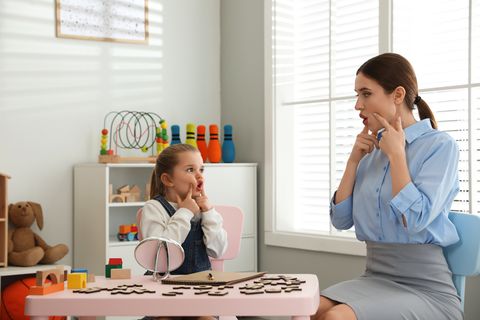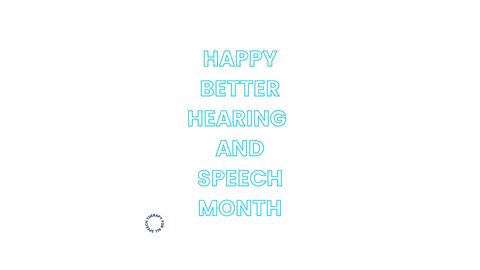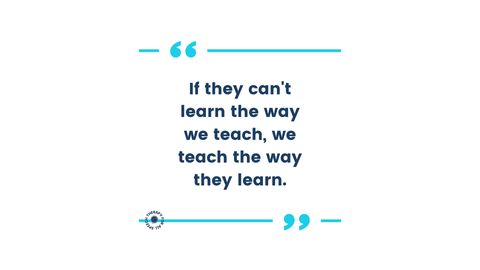Blog
Understanding the Impact of Covid-19 on Speech Development in Children and Teenagers
As the world continues to grapple with the effects of the Covid-19 pandemic, it is becoming increasingly evident that the virus has had a profound impact on various aspects of our lives, including the development of children and teenagers. One area that has seen significant disruption is speech and language development. From difficulty with articulation and spelling to challenges with inferencing and communicating to fellow peers and adults, the repercussions of Covid-19 on speech development have been widespread and concerning.
In this blog, we will explore how the pandemic has led to speech delays in children and teenagers, affecting aspects such as pragmatics in older children, articulation, spelling, decoding, and overall communication skills. Understanding these challenges is crucial for parents, educators, and healthcare professionals as they work to support young individuals in overcoming these obstacles and thriving in their speech development journey.
The Impact of Covid-19 on Speech and Language Development
The disruption caused by Covid-19 has been particularly challenging for children and teenagers, as it has significantly altered their daily routines, social interactions, and access to educational resources. These changes have directly impacted their speech and language development in several ways:
moreThe Transformative Power of Alternative Augmentative Communication Applications in Speech Therapy
Alternative Augmentative Communication (AAC) applications have revolutionized the field of speech therapy by providing individuals with communication disorders a means to express themselves and engage in meaningful communication. In addition to facilitating communication, these applications, such as Proloquo2Go, TouchChat, LAMP WFL, and TobiiDynavox Snap, have also proven to be effective tools in helping children and adults vocalize and attempt to use their own voice during speech therapy. This blog post explores the benefits of using AAC applications in speech therapy and highlights the role of Speech Therapy For All P.C. in providing specialized training in AAC therapy.
Enhancing Communication Abilities
AAC applications play a crucial role in empowering individuals with communication disorders to express themselves effectively. By utilizing symbols, pictures, and text-to-speech features, these applications enable users to communicate their needs, thoughts, and emotions, bridging the communication gap that exists for many individuals with limited verbal skills. Research has shown that AAC can significantly improve communication outcomes for children with autism spectrum disorder, intellectual disabilities, Down syndrome, and adults recovering from stroke (1).
moreThe Role of Speech Therapy in Enhancing Language Development
Speech therapy plays a crucial role in enhancing language development for individuals of all ages. Private practices, such as Speech Therapy For All P.C., are dedicated to empowering parents and helping children overcome communication challenges. In this blog, we will explore the unique approach and services offered by private practices, highlighting the importance of speech therapy in nurturing communication skills.
1. Personalized Play Therapy Techniques:
Private practices like Speech Therapy For All P.C. employ personalized play therapy techniques to improve communication skills in children . Through comprehensive assessments, speech therapists identify specific areas of improvement and tailor therapy sessions accordingly. This approach makes therapy engaging and fun for children, facilitating effective language development.
2. Family Involvement and Reducing Barriers:
The Walker Scottish Rite Clinic, a satellite location in North St. Louis City, is an example of a private practice that aims to increase family involvement in the communication process . By providing speech therapy services at no charge regardless of financial situation or insurance, they reduce barriers and ensure access to essential services for children aged two to six. This inclusive approach strengthens family support and allows for consistent progress.
moreUnlock the Power of Speech: Accessing Speech Therapy for Adults with Special Needs through Private Health Insurance
Are you an adult with special needs or do you know someone who is?
Communication is a fundamental aspect of human interaction, and speech therapy plays a crucial role in helping individuals with special needs improve their communication skills. We are excited to inform you about the importance of obtaining speech therapy for adults with special needs through private health insurance. Read on to discover how accessing speech therapy can improve the quality of life for individuals with special needs.
**Why Speech Therapy Matters**
1. Enhancing Communication Skills: Speech therapy helps adults with special needs develop effective communication skills, enabling them to express their thoughts, needs, and emotions more clearly and confidently.
2. Improving Social Interactions: Effective communication is essential for establishing and maintaining meaningful relationships. Speech therapy equips individuals with the tools to engage in social interactions, fostering connections and reducing feelings of isolation.
3. Boosting Self-Confidence: Improved communication skills can significantly enhance self-esteem and self-confidence, allowing individuals to participate more fully in their personal and professional lives.
moreThe Difference Between Individual Speech Therapy and Group Speech Therapy
Individual speech therapy and group speech therapy are two common approaches used to help individuals improve their communication skills. While both methods have their merits, there are distinct differences that make individual therapy a more effective option for many individuals. In this section, we will explore the differences between these two approaches and why individual speech therapy is often the preferred choice.
Individual speech therapy involves one-on-one sessions between a therapist and a client. This approach is usually offered at a speech pathology private practice. This personalized approach allows the therapist to fully focus on the specific needs and goals of the individual. The therapist can tailor the sessions to address the unique challenges faced by the client, whether it's articulation, language development, or voice projection.
On the other hand, group speech therapy involves multiple individuals with similar communication challenges participating in therapy sessions together. While group therapy can provide a supportive and collaborative environment, it may not offer the same level of individual attention as individual therapy. In a group setting, the therapist's attention is divided among multiple participants, and each person's goals and needs may not receive the same level of focus.
moreEmpowering Toddlers through Speech and Swallowing Therapy: Unlocking their Potential
Speech and swallowing therapy for toddlers is a powerful tool that can help unlock their potential and improve their communication skills. This therapy focuses on addressing speech and language disorders, as well as difficulties with swallowing. By working with a skilled pediatric speech pathologist, toddlers can develop the necessary skills to communicate effectively and overcome any challenges they may face in their development.
Speech therapy for kids involves a range of techniques and exercises designed to improve speech production, language comprehension, and overall communication skills. This includes activities that target sound production, vocabulary development, sentence formation, and social interaction. Swallowing therapy, on the other hand, focuses on addressing difficulties with feeding and swallowing. This can be especially important for toddlers who have difficulty with chewing or swallowing certain foods.
Benefits of speech and swallowing therapy for toddlers
Speech and swallowing therapy for toddlers offers a wide range of benefits. Firstly, it can greatly improve their communication skills, allowing them to express their thoughts and needs more effectively. This can lead to increased confidence and self-esteem, as they are better able to interact with others and participate in social activities.
moreUnderstanding Parkinson's Disease and its Effects on Speech
Parkinson's Disease is a neurodegenerative disorder that affects millions of people worldwide. One of the most noticeable symptoms of Parkinson's is the impact it has on speech. As the disease progresses, individuals may experience difficulties with voice quality, articulation, and overall communication. Understanding the underlying causes of these speech impairments is crucial in developing effective speech therapy exercises for adults with Parkinson's Disease.
Parkinson's Disease affects the basal ganglia, a group of structures in the brain responsible for motor control. This disruption in the basal ganglia can lead to decreased muscle control, resulting in speech difficulties. Common speech impairments associated with Parkinson's include soft or hoarse voice, monotone speech, slurred or imprecise articulation, and decreased breath support. These challenges can significantly impact an individual's ability to communicate effectively, leading to frustration and social isolation.
Here at Speech Therapy For All, our speech language pathologists can help you and/or your loved ones with their language and swallowing difficulties.
Benefits of Speech Therapy for Adults with Parkinson's Disease
moreFrom Struggle to Success: Why Speech and Swallowing Therapy is Crucial for Adults with Aphasia After a Stroke
Aphasia is a communication disorder that affects a person's ability to understand and express language. It is often caused by a stroke, which occurs when blood flow to the brain is disrupted. When a stroke affects the language centers of the brain, it can result in aphasia. This condition can severely impact an individual's ability to speak and swallow effectively, making daily activities challenging.
Aphasia can manifest in several ways, depending on the specific area of the brain that is affected. Some individuals may struggle to find the right words or to form coherent sentences, while others may have difficulty understanding spoken or written language. In addition to these language impairments, many adults with aphasia also experience problems with swallowing, known as dysphagia. Dysphagia can lead to choking, malnutrition, and pneumonia if left untreated.
The importance of speech and swallowing therapy after a stroke;
Speech and swallowing therapy plays a crucial role in the recovery of adults with aphasia after a stroke. These therapies are designed to help individuals regain their ability to communicate effectively and swallow safely. By working with a qualified therapist, stroke survivors can improve their speech clarity, increase their vocabulary, and enhance their overall communication skills.
moreIs My Toddler a “Late Talker”? Classic Signs
Many parents have clear recollections of the day their child first uttered the words, “Mama” or “Dada.” Once those two words come out, a string of words typically follows: “Doggie,” “Up,” “No,” “Yankees” (Unless of course you’re a Red Sox household), and so many more…
But some children don’t begin speaking as quickly as others. And this can cause parents a lot of anxiety. Perhaps their first and second children began talking around 18 months, but child number three has yet to utter a word and is 22 months old.
moreHappy Better Hearing and Speech Month Social Media Images
#speechtherapy
#logopedia
#logopeda
#slp
#speechtherapist
#autism
#speechpathology
#slpeeps
#therapy
#speech
#speechlanguagepathology
#occupationaltherapy
#physicaltherapy
#slplife
moreSpeech Therapy Quotes for Any Day of the Week
If you need a little inspiration any day of the week, look no further than these quotes.
moreIs “in person” speech therapy safe for my child?
Covid 19 has still really made a giant mess of things. Hopefully we are all on the tail end of this horrible pandemic. It has changed the way we do many things. This also happens to be the case with the way we provide speech therapy.
Traditional speech therapy ( in the private setting) consisted of having the child, with the therapist, in a private room, while their goals were targeted ( articulation difficulties, language impairments, fluency disorders, problems eating and drinking, etc…). The parent would usually come into the room at the the end of the session; the therapist would go over the highlights, assign homework, and the parent and child would leave and go on their merry way.
moreiPad apps that can increase communication skills part 3
Happy New Year Everyone!
Now that the new year is upon us, let us hope that better things are in store for everyone!
Today’s post is about an app that has shown great potential to be used when working with children and adults who are non-verbal.
moreiPad Apps that can be used to increase communication skills part 2
Hello All!
We are back with our second installment of iPad apps that can be used to increase communication skills :)!
Today’s featured app is Proloquo2go – I am sure many of you have heard of it 🙂
https://apps.apple.com/us/app/proloquo2go/id308368164
moreWhy is my child having feeding difficulties?
Our previous posts have discussed feeding milestones and how to best help your little ones advance through the feeding skills and food repertoire necessary for them to eat a healthy, age appropriate balanced diet. However, despite following all the right steps and introducing developmentally appropriate foods at the right time, your little one may still struggle to meet these essential milestones.
moreiPad Apps that can be used to increase communication skills
Hello 🙂
Here at Speech Therapy For All P.C., we loooovvveeee to use apps during therapy ( both through teletherapy and face to face appointments). We get asked many times what apps can help children increase their language skills, so we figured we would feature a different app in the upcoming weeks on our blog page 🙂
moreIs your baby ready to eat table foods?
Is your baby ready to eat table foods?
If your baby has progressed through the stages and skills outlined in our previous posts then they are ready to transition to table foods. During this transition certain table foods may be selected to introduce sooner than others, or some modifications may need to be made in order to make tolerating table foods a safe and enjoyable experience for you and your baby.
moreCovid 19 & Speech therapy services
Covid 19 has really made a giant mess of things. It has changed the way we do many things. This also happens to be the case with the way we provide speech therapy.
Traditional speech therapy ( in the private setting) consisted of having the child, with the therapist, in a private room, while their goals were targeted ( articulation difficulties, language impairments, fluency disorders, problems eating and drinking,etc…). The parent would usually come into the room at the the end of the session; the therapist would go over the highlights, assign homework, and the parent and child would leave and go on their merry way.
morePROMPT Therapy
What is PROMPT therapy?
PROMPT (Prompts for Restructuring Oral Muscular Phonetic Targets) is a therapy type that has grown in popularity as an effective therapy treatment for motor planning disorders, such as CAS (Childhood Apraxia of Speech). If your Speech Language Pathologist, is trained in this specialized treatment technique, they may suggest this therapy type to support your child’s speech production.
moreIs your baby getting ready for table foods?
Hello again!
Hopefully your baby is now an adventurous and happy eater of pureed foods and is ready to take the exciting next step towards table foods! If you and your baby are still working on acclimating to infant cereals, pureed fruits, vegetables, and proteins – feel free to check out our previous posts for some handy tips and guidelines for success.
moreIs your baby having trouble transitioning to solid foods ( Part 2) ?
By 6 months of age if your baby has met the feeding and nutritional goals outlined in the previous post, you can start the important and exciting next step in your feeding journey – expansion and exposure!
Between 6 and 8 months of age, you and your baby will continue to practice and eventually master the skill of spoon feeding (post on cup drinking coming soon!). You should first thin out the puree with breast-milk or formula before gradually cutting back on the amount of liquid as your baby gets used to thicker purees. Once your baby is tolerating thick purees you can start to boil and mash the foods instead of pureeing. This may be a noticeable change for your baby as this advanced texture can bring lumps and bumps – a whole new sensory experience! Remember that babies making faces and grimaces doesn’t mean they don’t like it. Keep exposing, encouraging and praising your little one as they embark on this new texture adventure.
moreIs your baby having trouble transitioning to solid foods?
The transition to table foods should occur around your baby’s first birthday, but to meet that milestone you should start that process with them as early as 4 months of age! Keep in mind, this is a lengthy process with many developmental feeding milestones that need to be acquired over this 8-month transition. If your baby is transitioning slowly, or if you’ve started the process late, be sure to give your baby the extra time they need to practice their newly learned feeding skills and become effective, adventurous eaters.
Up to age 1, your baby may still rely on breast milk or formula for calories and nutrition. Spoon feedings should start with small amounts at first for exposure, exploration and skill building. Then, transition to baby foods, finger foods and table foods to allow for your baby to wean off breast or bottle feeding. Eventually, progress by increasing the intake by volume with the food groups below.
moreWhen to use a starter communication board
“My child isn’t speaking”
“My child gets so frustrated when we don’t understand him!”
” My child starts to get violent or self injurious when we don’t get her what she wants”
moreReservations about teletherapy?
Reservations about teletherapy for your little one?
I often get the question about whether teletherapy in lieu of hands on direct therapy is effective. While they are both different approaches, and some may have a strong preference over one type or the other, teletherapy is an effective service delivery model and there are so many reasons it can be a wonderful way to kick start your child’s speech.
moreWhen is the right time to try speech therapy?
“My son isn’t talking.” My daughter wont eat certain foods” “My son screams in frustration when he cant let me know what he wants”.
These are some of the many statements we hear from parents when they are telling us about their children. Many times parents are just frustrated and not sure what they can do. .
moreSensory Processing and Feeding… How does one affect the other?
You may have heard the term “sensory” being used to describe children who do not enjoy the feeling of tags on their clothing, or walking barefoot in sand or wet grass – but how could that possibly affect a child’s eating?
moreTo eat, or not to eat, that is the question
“I don’t want that!” “Ewww, that is gross! “I just want to eat my food!
Many children these days are constantly testing parents as to what they will and will not eat. Many parents may find themselves making two to three dinners a night just so their children “do not starve”. In many cases, the children may be picky, or just prefer their own food ( imagine as an adult getting to eat ice cream and cookies for dinner every night).
moreWelcome
Welcome to our site! We are in the process of building our blog page and will have many interesting articles to share in the coming months. Please stay tuned to this page for information to come. And if you have any questions about our business or want to reach out to us, we would love for you to stop by our contact page.
Thank you!
more

































